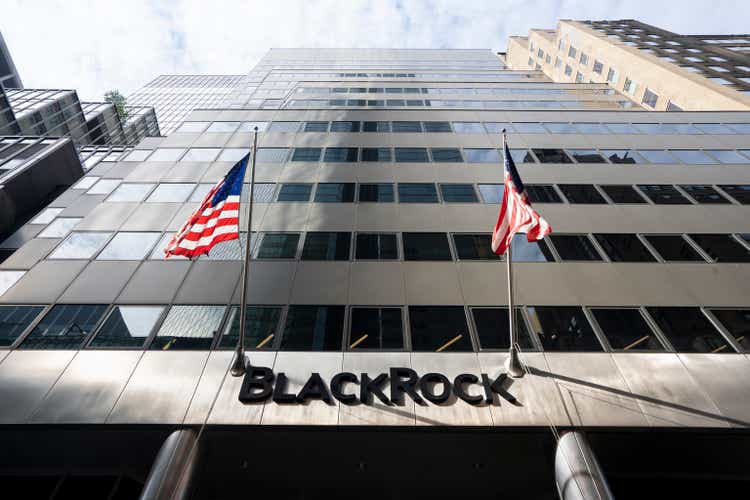Figma's Strategic Bitcoin ETF Investment
In a groundbreaking development that underscores the rapidly evolving landscape of corporate treasuries, Figma, the prominent design software powerhouse, has reportedly made a significant foray into the digital asset space. Disclosures from Figma’s initial public offering (IPO) SEC filings reveal the company holds a substantial $70 million worth of spot Bitcoin Exchange-Traded Fund (ETF) shares. This revelation, initially highlighted by Bitcoin Magazine, is far more than a mere financial footnote; it stands as a powerful indicator of burgeoning institutional Bitcoin adoption and potentially a new blueprint for future corporate crypto investment strategies.
For many, Figma is primarily associated with innovative design and collaborative creativity. However, this news firmly positions the company as a forward-thinking entity in the financial realm. The decision to allocate a considerable portion of its assets to Bitcoin ETF shares is not a casual one; rather, it suggests a calculated move to diversify and potentially enhance its treasury holdings. Unlike direct Bitcoin purchases, which can introduce complexities related to custody and security, investing in a regulated ETF offers a more familiar and accessible pathway for traditional corporations to gain exposure to the world’s leading cryptocurrency. Figma's strategic choice illuminates several key aspects: it provides accessibility and ease by simplifying the investment process for corporations, bypassing the operational hurdles of direct cryptocurrency management; it offers validation and legitimacy, as a company of Figma’s standing making such an investment lends significant credibility to the digital asset market, signaling that Bitcoin is increasingly viewed as a legitimate asset class; and it reflects a diversification strategy, implying a conscious effort to move beyond traditional treasury assets, seeking new avenues for growth and inflation hedging in an unpredictable economic environment.
The approval of spot Bitcoin ETFs in the United States earlier this year marked a watershed moment for the cryptocurrency industry. These funds, which directly hold Bitcoin, provide a regulated and straightforward investment vehicle for a wide range of investors, including institutions. For entities like Figma, this means they can participate in Bitcoin’s potential upside without the need to navigate the intricacies of crypto exchanges, private keys, or cold storage solutions. This unparalleled convenience is a critical driver behind the accelerating pace of institutional Bitcoin adoption. The trend extends beyond just tech companies, with a growing interest observed from various sectors in incorporating digital assets into their portfolios. Figma’s significant holding through an ETF underscores a maturing market where regulated products are effectively bridging the gap between traditional finance and the innovative world of cryptocurrencies.
Figma’s bold move prompts a crucial discussion: are we on the cusp of a new era where corporate crypto investment becomes a standard component of treasury management? Historically, corporate treasuries prioritized stability and liquidity, typically focusing on cash, bonds, and money market funds. However, with persistent inflation concerns, low interest rates on traditional assets, and the search for enhanced returns, some pioneering companies are now re-evaluating their strategies. The perceived benefits of integrating digital assets like Bitcoin into a corporate treasury include its potential as an inflation hedge, given Bitcoin’s finite supply, which is often cited as a strong argument against currency debasement. It also offers alignment with growth and innovation, particularly for tech companies, where investing in cutting-edge assets like Bitcoin can resonate with their brand identity as innovators and appeal to a tech-savvy investor base. Furthermore, Bitcoin’s low correlation with traditional assets can offer portfolio diversification benefits, potentially reducing overall portfolio risk. Nevertheless, it is essential to acknowledge the inherent challenges. Bitcoin’s price volatility remains a significant factor, and the evolving regulatory landscape requires careful navigation. Companies embarking on corporate crypto investment must conduct thorough due diligence and establish robust risk management frameworks.
The fact that this disclosure came via Figma’s SEC filings is particularly noteworthy. As a company pursuing an IPO, Figma is obligated to provide comprehensive transparency regarding its financial positions to the U.S. Securities and Exchange Commission and potential investors. The inclusion of $70 million in Bitcoin ETF shares in these public documents signifies a deliberate and well-considered financial strategy, rather than a speculative, off-the-books venture. It implies that Figma’s board and financial leadership have assessed the risks and rewards, deeming this investment a legitimate and integrated part of their overall financial planning. This level of transparency, mandated by SEC filings, sets a crucial precedent. As more corporations explore or increase their exposure to digital assets, similar disclosures will likely become more common, offering invaluable insights into the evolving corporate approach to the crypto ecosystem.
Figma’s substantial Bitcoin ETF holding is more than just a piece of news; it’s a significant marker for the increasing maturity and mainstream acceptance of the crypto market. It vividly illustrates how regulated investment products are paving the way for broader institutional Bitcoin adoption. As more companies observe the strategic moves of their peers, and as the regulatory environment continues to provide clarity, an accelerated pace of this trend could be witnessed. Investors, market analysts, and industry watchers should anticipate increased corporate disclosures, with more companies across various sectors revealing similar crypto asset holdings in their financial reports. Furthermore, ongoing guidance and frameworks from regulatory bodies like the SEC could further de-risk and encourage mainstream corporate participation. Finally, the development of new, regulated crypto financial products beyond spot ETFs could open even more diverse avenues for corporate investment.
In conclusion, Figma’s reported $70 million investment in Bitcoin ETF shares is a compelling testament to the growing confidence in digital assets within the corporate world. It powerfully underscores the strategic importance of regulated crypto products in facilitating broader institutional Bitcoin adoption and is actively reshaping traditional treasury management practices. This development is not merely about a design company venturing into crypto; it’s about a significant industry player making a calculated, transparent move that reflects a profound paradigm shift in corporate crypto investment. As SEC filings continue to unveil such insights, the narrative around digital assets in mainstream finance will undoubtedly strengthen, charting a new course for corporate financial strategies globally.








